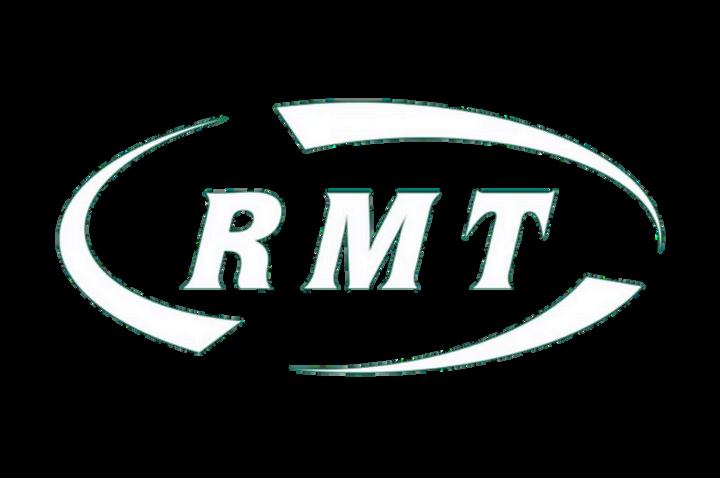
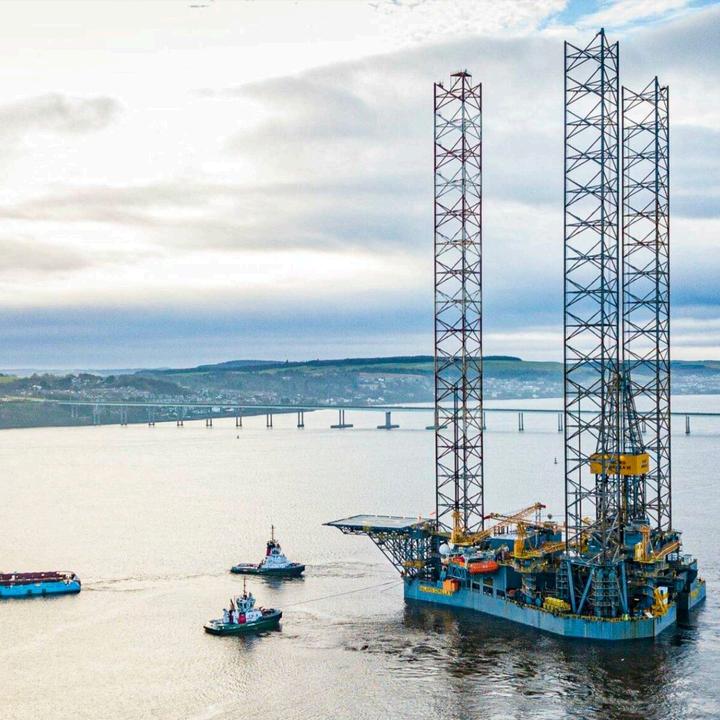



It was an honour to be asked by RMT Scotland Organiser Gordon Martin to contribute to the latest edition of The Scottish Mariner. I’ve been a proud member of the RMT for 22 years. Though I hail from the railway town of Darlington, I’ve always stood in full support of our maritime members’ campaigns and deeply respect the historical and ongoing significance of the maritime sector within our union.
It’s crucial that this sector remains strongly supported and wellorganised. Since being elected your President, I’ve had the privilege of representing our union as part of the RMT delegation to the STUC Congress in Dundee this April. I was also honoured to chair our Annual General Meeting in Glasgow last month — a key event for shaping the union’s direction. In addition, I chair the National Executive Committee (NEC) in its regular work, including matters affecting our maritime members. The input of Maritime NEC reps and the National Secretary
has been invaluable in deepening my understanding of the industrial landscape our seafarers navigate.
Members at CalMac Ferries and across Scotland’s wider maritime sector — should be especially proud of the direct award of the next Clyde and Hebrides ferry service contract to CalMac for a ten-year period. Frankly, this is a landmark achievement that pushes back against years of anti-worker, proprivatisation public sector procurement.
There is much to criticise in the SNP’s governing record since its first majority nearly 15 years ago — especially around delays in delivering new ferries and harbour upgrades. But the direct award to CalMac is undoubtedly the right move if we are to build a People’s CalMac.
We must also remember the vital role played by seafarers in the offshore oil, gas, and renewable industries. Too many politicians forget this, but we won’t let them. Our members at Tidewater, for example, continue to deliver vital services to North Sea installations amid growing uncertainty.
As the transition to cleaner energy accelerates, supporting Scotland’s seafarers throughout that change is non-negotiable.
Friends, the recent Hamilton and Stonehouse by-election result showed us that we can’t shy away from this fight. As your President, I am proud to stand shoulder to shoulder with RMT Scotland’s maritime members now and always.
George Welch
RMT President
In early May the RMTs “A Peoples CalMac” campaign came to a successful outcome and the many months of political campaigning, public meetings, meetings with ferry user groups and direct meetings with Scottish Government Ministers and Transport Scotland officials paid off, with the Cabinet Secretary for Transport making the announcement we had all been waiting for which was a direct award of the Clyde and Hebridean Ferry Service contract to CalMac.
This direct award provides certainty for CalMac members and the island communities they serve and ensures the costly and potentially damaging tendering process is avoided. I believe this offers the opportunity for a bright future for CalMac members although it’s already absolutely clear to me that changes throughout this company are already being planned and we must all remain vigilant to ensure that these changes do not come at the expense of hard won terms and conditions.
Elsewhere within the maritime and offshore sectors of our union in Scotland we continue to work together to provide the very best service possible to members and to this end I am delighted that Oban Shipping Branch is back up and running and in May I was pleased to attend a meeting of the branch along with the General Secretary and the maritime NEC member. Branches are and must remain integral to the wellbeing of our union and I make every effort to attend as many branch meetings as possible including our maritime branches whose members make up a significant percentage of our union in Scotland.
At our most recent Organising Sub Committee meeting two maritime companies were identified as realistic opportunities for securing new collective bargaining agreements and I held a teams meeting with members at one of these companies in early July to update them on progress of this campaign. These Targe Towing Tugs members deserve the benefits and protections a collective bargaining agreement secures for workers and I’m hopeful they will soon be covered by a CBA in the same manner as their colleagues at Targe Towing Marine Services enjoy following an earlier successful recognition campaign.
Finally, I hope you all enjoy this latest edition of the Scottish Mariner and I thank everyone who has contributed to this edition.
Gordon Martin RMT Scotland Organiser
Think back to the beginning of your career, could you have used the help of a mentor?
RMT Union Learning are continuing to develop a network of mentors who can offer practical help and guidance to new deck and engine modern apprentices who will be joining CalMac in September and joining their first ships in November.
Providing them with support, guidance and knowledge, mentors will help our apprentices navigate their journey with CalMac for 12-18 months, ensuring they feel comfortable and confident in their role.
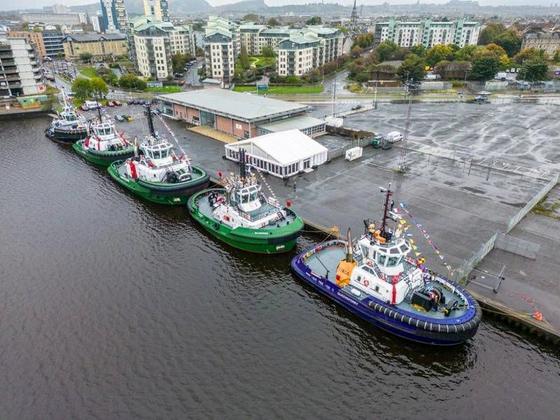
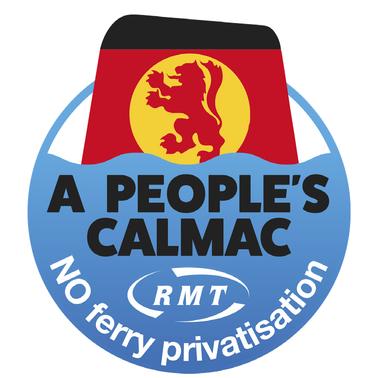
In recent years we have had a fantastic response to this opportunity as we seek to pair up each of the 20 new recruits with a mentor in their workplace and help them as they begin their careers at sea.
You will then be required to complete a one day online mentoring workshop to ensure you are equipped and confident in providing mentorship.
The workshop will be delivered in September this year, specially developed by RMT and delivered by Social Enterprise Academy it will cover:
Embedding positive behaviours and company culture
Improving skills and transferring knowledge
Supporting career development
Providing apprentices with a neutral ‘ear’ and signposting for help if needed
Supporting communication between the crew member and their line manager(s)
To find out more or register your interest for the mentoring workshop, please get in touch ASAP:
Dan Henderson

I’m very grateful of the opportunity to introduce myself to readers of Scottish Mariner as the newly appointed Manager of RMT’s newly created Recruitment, Retention and Organising Department (RROD). The tl:dr is that the RROD is here to ensure the national Union stays focused on RMT’s central purpose as defined at the very top of our Rulebook, in Rule 1:4(a):
4. The objects of the Union shall be:to secure the complete organisation of all workers employed by any board, company or authority in connection with rail, sea and other transport and ancillary undertakings and offshore & energy;
Some readers may recall the RMT’s Organising Unit. This was a group of home-based and nationally mobile, full-time RMT staff, who in a nutshell were responsible for assisting activists
and Officers in Branches and Regions with their own recruitment, retention and organising efforts.
The Organising Unit, in its time, was party to some major successes and will be remembered fondly across the Union for years to come. It could be argued that its most significant success was in spearheading the development of a generalised culture of recruitment across many of the Union’s Branches and Regions.
Over time, however, RMT’s rate of growth has slowed to a degree and revenue from subscriptions has declined, with ever larger numbers of members paying the low rate of membership subscriptions, often in error. With the evolution of RMT’s organising strategy, it has been determined that a formal, officebased Head Office department be created to assist with addressing these and other strategic problems going forward.
The new department will in part be taking over some of the work of the previous Organising Unit but will also be taking on a significant body of work that has to date fallen within the remit of the Membership Services and Constitution Department.
This will include, but not be limited to, management of much of the Union’s Organisation Files and collective bargaining agreements, and the administration of the execution of associated NEC Decisions.
The new department will also be responsible for developing an exhaustive industrial map of the sectors in which RMT organises, for the integration of company establishment and constituency information in the Union’s central data through the Digital Transformation Project, and the development of an evolving template Regional organising plan based on best practice across all Regional Councils. Over time, we hope to provide the Union with better empirical data with which to make decisions about allocation of resources, and to inculcate the spirit of data-driven decision-making, in much the same way that the previous Organising Unit promoted the spirit of activist-led recruitment.
It is hoped that we will soon have the capacity to effectively administer numerous Britain-wide sectoral organising committees. It is too often the case that promising organising, recruitment or retention initiatives fall
off the radar or disappear under the weight of more pressing priorities. In monitoring these by regular online committee meetings, experience tends to show that there is less chance of this negative dynamic developing to dangerous levels.
Your National Secretary has already made some progress in getting some of these Britain-wide organising committees going on a semi-regular basis across the maritime and offshore sectors. Where RMT Scotland already has extensive experience in organising by these means, we will seek to integrate where possible, separate work where necessary, whilst most importantly learning from the experience of those with the longest experience of organising in the maritime and offshore sectors.
All of these burning administrative priorities are suggestive of a RROD that will be less directly engaged with rank-and-file activity than the previous Organising Unit. I hope this will not be the case, but I am under no illusion that it will be possible for the RROD to undertake physical recruitment activities on anywhere near the scale of the previous Organising Unit.
The national Union will necessarily tilt towards even more activist-led organising in the coming period, and it will be the job of the RROD to facilitate and bring together those activists far more than it will ever be directly engaged in on-site recruitment.
We will be leaning on you the members and activists more than ever to drive forward the Union’s existential mission: to organise the workers of the Rail, Maritime, Transport and Offshore sectors, wherever they may be. If anyone who has read this far is at all interested in finding out how you can assist us with this work, or even better to share your ideas with us, I would be delighted to hear from you. I can be contacted on 0207 529 8701, 079 2040 1917 or b.paterson@rmt.org.uk. There is much work to be done in the Scottish Maritime and Offshore sector in particular, and activists are currently leading several live recruitment and organising campaigns that the RROD is attempting to assist with in our small way. RMT is currently pushing for recognition with Northlink shoreside staff and Targe Towing Marine Crew. Following the resolution of 2024’s ODIA dispute, your Union
made an important impression in the ROV Sector by securing bargaining rights at DeepOcean Subsea Services, and we are constantly looking for further organising opportunities in the North Sea.
I am pleased to report that Ian Boyle has joined the new department in our Liverpool Office and will eventually form part of a compliment of four members of staff in the department in total, with further appointments pending in London and Glasgow, to be advertised in that order to allow for training requirements.
Fraternally
yours,
Bill Paterson Manager, Recruitment, Retention & Organising Department
The RMT union has many aspects to it and allows for all members to participate in various meetings, conferences & rallies/marches etc. Shipboard meetings should be held regularly by the elected reps to share information to the crew and listen to the members complaints. On board meetings are a crucial part of Recruitment & Retention as the meetings highlight crew who are not members of the RMT union and this allows the members and reps to encourage the Non-Members to join, as the strength of membership numbers within the workplace strengthens the power of the Union Representatives at times of negotiations with Companies and helps protect Terms & Conditions in your work place. Non- members weaken this position and divide the work force at times of industrial action which is a stigma that can stick with you for the rest of your life.
Branch meetings are usually held monthly and are where other interests of the union can be raised other than workplace items. These can be anything that is germane to the union rules and more regarding Maritime,
political, and social matters that have an impact on your workplace or society locally or globally.
An important part of Branch meetings is submitting delegates to represent branches at various conferences, which happen regularly throughout the year as well as the Annual General Meeting (AGM). Other conferences and committees that need delegates to represent branches and members are Young Members, Female delegates, Black & Ethnic Minority delegates, LGBTQ+ delegates and more. Information regarding various conferences etc are emailed to members and can be found online at the RMT website, but most importantly, is attendance at a branch meeting where more in depth information can be obtained and discussed and it is the members of the branch meeting that officially nominate & second various delegates to attend said conferences.
The Glasgow Shipping Branch hold monthly meetings and regularly attend various events which members are encouraged to attend. The next Branch Meeting will be August and the next event will be Merchant Navy Day which is on the 3 September. rd
This day is recognized by Maritime Fraternities and Dignitaries every year remembering Merchant Seafarers of the past who lost their lives during wartimes and in the line of their employment and Merchant Seafarers who continue to serve in UK waters and globally.
The British Merchant Navy has been severely depleted in the last 40 years in regards to the decline of British Merchant Seafarers but opportunities still exist for young men & women who wish to pursue a career at sea.
A fine example of this is within Caledonian MacBrayne Ferries Ltd who started an Apprentice Scheme many years ago after discussions and agreements with the RMT union, who instigated the conception of the scheme. This has been a great success for the workforce of Calmac and it continues to prove fruitful many years later. The success of this Apprenticeship Scheme should be adopted by other Maritime Companies and modeled to suit the needs of the company and discussed with the RMT union on the best way to implement it and to protect the needs of the members Terms & Conditions.
As a member of the RMT Union, you have a voice, whether it is in the workplace or at a Branch Meeting. The union is a democratic union that is run by the members, not the officials. It works on the concept that resolutions come from branches and are put to either the RMT Scottish Regional Council (SRC) or direct to the National Executive Committee (NEC).
The SRC meets quarterly and delegates from each branch attend to discuss and debate matters and resolutions which are then sent to the NEC for discussion and approval or dismissal. If the resolution is adopted by the NEC, they then instructed the RMT Union Official, usually the General Secretary (GS) to act on the resolution. This is unlike other unions where the Union Official delegates to the representatives.
The NEC is made up of delegates from various branches from various industries. Rail, Maritime & Transport. Members of the NEC are elected from the region they represent, for example the delegate for Maritime Region 3 (M3) would be elected from either the Glasgow, Oban, Aberdeen or Belfast Branches and if more than one nomination
then it would go out to ballot for the members to elect.
There is a lot more I could write about union membership, but ultimately, it is the fundamentals of the RMT union rule book that all members should encourage non-members to join the union to help protect your Terms & Conditions (T&Cs) in the workplace and make the union work as a whole for all members regardless of what industry you work in and to work towards a fair and egalitarian society for all.
Calm waters to you all. In Solidarity
Graham Wallace (Branch Secretary)
Email: glasgowshipping@rmt.org.uk
Tel: 07557671481
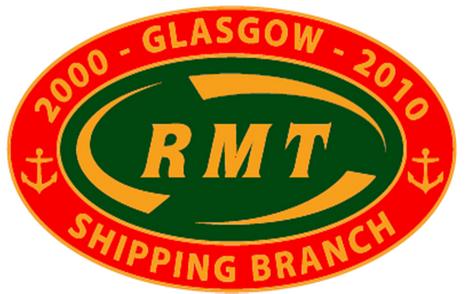
“Injuries can occur at any time - at work, on the road or just walking down the street. When this happens, it is your right to claim damages and obtain the justice you deserve. That is where your Union can and will assist.
As part of your Union membership, you are entitled to free legal support, should you suffer an injury. Our expert solicitors will investigate your case and provide straightforward, honest advice as to your right to claim damages. No case is too big, or too small. Last year, we recovered damages of over £1m on behalf of RMT members and their families. Settlements ranged from a few hundred pounds, to hundreds of thousands.
Some cases can settle quickly, whilst others need to go to court. Utilising your Union solicitors ensures you never have to pay any legal fees, court fees or solicitor costs. You are covered as part of your membership. If your case is sufficiently complex that you require the assistance of a KC, this will be covered by the Union.
We ensure you receive the best legal advice and representation possible, and we pursue cases in every court in Scotland.
As a Union member, your representation is entirely free of charge. Even if you do not win your case, you do not pay any fees. NonUnion solicitors will typically ask you to pay them up front, or, should your case succeed, will take up to 30% of your damages as their fee. The RMT does not deduct anything from a member's damages.
Should you lose a case being run by a non-Union solicitor, then you may be responsible for the other side’s legal costs. This does not happen if you are a Union member. On the rare occasions a case is lost, your Union will cover any monies owed to any other parties.
The RMT also provides support in Employment Law issues, such as unfair dismissal, or discrimination cases. Again, you will receive free legal advice and representation should you need to go to an Employment Tribunal, and if successful, will retain 100% of the damages the Tribunal awards you.
Your Union also provides a free legal helpline, a free wills service, and free representation in regard to criminal charges, where work-related. Other legal services – family & child law, divorce, and conveyancing – are also available to members at discounted rates.”
Alan J Rodgers Thompsons Solicitors Scotland

